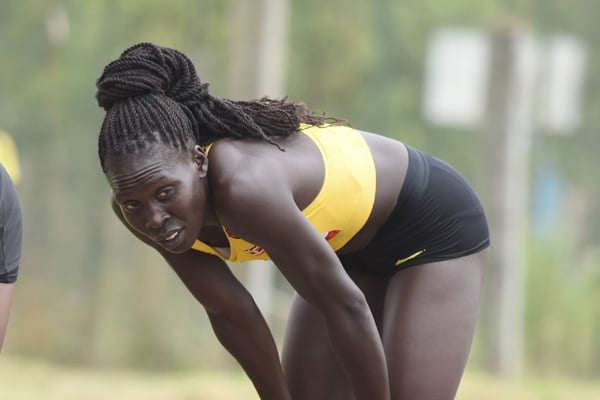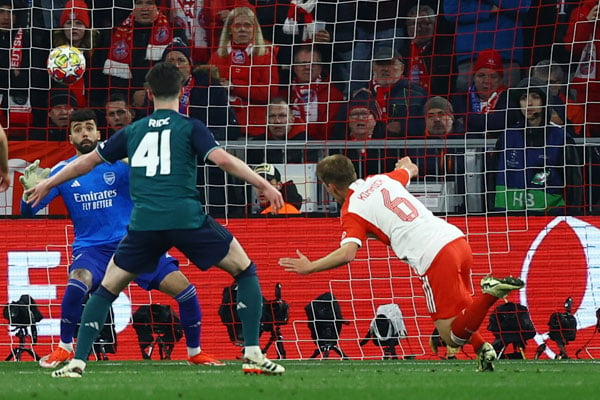Prime
Inside Magogo’s proposed sports bill

National 400m sprinter and Olympian Shida Lina struggled for funding too. Photo | Courtesy
What you need to know:
- The Physical Education and Sports Bill previously never made it past the first parliamentary committee. It has been silent since. Both bills were or are meant to replace the outdated NCS Act of 1964.
Fufa president and Budiope East Member legislator Moses Magogo took matters into his own hands a fortnight ago, seeking leave of Parliament to draft a new sports bill as a private member.
The Physical Education and Sports Bill previously never made it past the first parliamentary committee. It has been silent since. Both bills were or are meant to replace the outdated NCS Act of 1964.
Magogo’s proposed law has been welcomed by some and treated with reservations by others. Below let us get into it.
The Sports Commission
According to the bill, the national sports regulatory authority will no longer be called National Council of Sports (NCS).
However, as established in Section 2 of the NCS Act, the body will continue in existence and will be known as the Uganda Sports Commission (USC), which will be a body corporate with perpetual succession and a common seal.
It may, in its corporate name, for and in connection with its objects and functions under this Act, acquire, hold and dispose of movable and immovable assets; sue or be sued, enter into any contract and other transaction as may be expedient.
Among its functions, the Commission shall incorporate, recognise and register all national sports federations, as well affirm an activity as a national sports discipline. It shall also acquire, construct, rehabilitate, maintain and manage all public sports facilities for use by national sports federations and their members.
Activities of national teams, national athletes and sports clubs representing Uganda in international sports competitions shall also be facilitated by the Commission, whose head office shall be in Kampala but may establish branches in other areas of Uganda.
Composition of the Commission
The Commission shall consist of a chairperson and deputy, one representative from each of the national sports federations and the Uganda Olympic Committee (UOC) president.
There shall also be a representative each from the Ministries of Education and Sports, Finance, Trade, Labour and Social Development, and Tourism.
The general secretary shall head the Secretariat, and members of the Commission shall elect amongst themselves the chairperson and deputy.
A member of the Commission shall hold office for a period of five years and the appointment may be renewed for one more term only.
Save for the general secretary, who shall be paid such remuneration as shall be specified in their instrument of appointment, a member of the Commission shall be paid by the entity they represent.
Incorporation
Incorporation by trusteeship is one of the main reasons Magogo and Fufa have always been at crossroads with the existing regulations, arguing that it limits their trading as a business.
Under the bill, a national sports federation shall be a body corporate with “perpetual succession, a common seal and power to sue and be sued and to do or suffer to be done all things which may be or are suffered by a body corporate.”
A national sports federation incorporated under this Act shall be deemed a company limited by guarantee.
Sports Fund
One of the reasons the bill is being pushed is to ensure sports is economically empowered, and the Commission seeks power to – with approval of the Minister responsible for Finance – invest any surplus money from the Fund in conformity with good commercial principles.
The National Sports Fund is the pool from which the Commission will have reserves for their member entities. It is intended to secure a sustainable means of funding national sports by providing a source of funds to support the activities of the Commission and national sports organizations.
Sources of fund include appropriation by Parliament for the purposes of the Fund, money borrowed by the Commission – with the approval of the Finance Ministry – and voluntary contributions.
Others are grants, gifts or other endowments and donations made to the Fund, with the approval of the Minister responsible for Finance, by a foreign government, national or international agency, foreign and national institutions or person, body or entity.
Incomes derived from operations of this Act or otherwise accruing to the Fund such as payment from fees, fines and charges imposed on any person under this Act shall be pooled to the Fund.
Stakeholders welcome bill
Harold Atukwatse, a corporate and sports lawyer at Adalci Advocates, said the biggest positive is the introduction of the National Sports Tribunal.
“For any sector to grow, there has to be competent and established dispute resolution mechanisms. There has been a big abhorrent gap in terms of sports dispute resolution,” he said.
Atukwatse said the general principle in sports law is that sports disputes should not be taken to ordinary civil courts.
However, he said key problems facing Ugandan sports have not been adequately addressed in the bill, or have been left out altogether.
Citing taxation, the lawyer said sports in Uganda doesn’t generate a steady and dependable income.
“My take is that sports is one of the sectors that should benefit from government fiscal incentives in the form of tax holidays or reduced taxation,” he said.
I also have reservations about provisions for the media and intellectual property rights, which will in turn discourage coverage of sports by journalists.
Digital laws
Prohibition of electronic media production and broadcast
Under this, a person who, without authorisation of a national sports organisation, captures by camera the still or moving pictures or records by an audio recorder, and broadcasts activities at an event organised by the aforementioned entity commits an offence.
That person is liable on conviction, to imprisonment for a period not exceeding five years, or to a fine not exceeding 120 currency points (a currency point is Shs20,000), or both.
Other prohibitions include importation, manufacturing, distribution or sale of any counterfeited Ugandan sports branded materials, attire or apparel without the authorization of a national sports organization.
Match officials, coaches, trainers, athletes, club owners, members and employees of national sports associations are also barred from any betting past-time in relation to a sports activity organized by a national sports organization.
“A person who contravenes subsection (1) commits an offense and is liable on conviction to imprisonment for a period not exceeding ten years.”
The bill also introduces a national sports tribunal which seeks to solve all sports cases outside of local courts, which is some milestone should it be passed into law.
The end game, here, is to have the NCS Act, Cap. 48 repealed. However, this will have no effect on the existing contracts at NCS Secretariat, with its entire composition transitioned into the Commission.
What stakeholders say
Moses Magogo, Fufa. Everything starts with regulation. There are challenges in sport in Uganda and the law will help with that. Uganda is a member of the UN and AU and must follow the chatters. It is a right for people in the constitution to get sports services. The government is mandated to provide infrastructure, funding the sports entities and then the law. To get one and two you need the law. The sports bill will clarify that.
Patrick Ogwel, NCS. The NCS Act is obsolete. It only addresses amateur sports. The law should ensure prioritisation of sports with clearer direction. We need a clear fund or pool of money dedicated to sports, a clearly defined technical development plan, governance of national associations etc.We need a law that allows sports to make its own money through private partnerships, a holistic framework that addresses the rewards and awards schemes.
Patrick Kanyomozi, Uspa. National sports organisations own broadcast rights of their events and should be able to earn from them. My reservations are on prohibiting one from capturing by camera the still or moving pictures or recording by an audio recorder. The challenge with media accreditation in Uganda is that sports bodies use it as a tool to get back at journalists. If journalists are ‘thrown out’ of WhatsApp groups for having divergent views, what about accreditation?
Nasser Sserunjogi, Fuba. The Bill is long overdue.The general sports budget should be increased. Sports brings to this country more than it gets from it. The bill should also have a clause that implores entities like betting companies to give back a percentage to the sports sector, which gives a lot to them.




